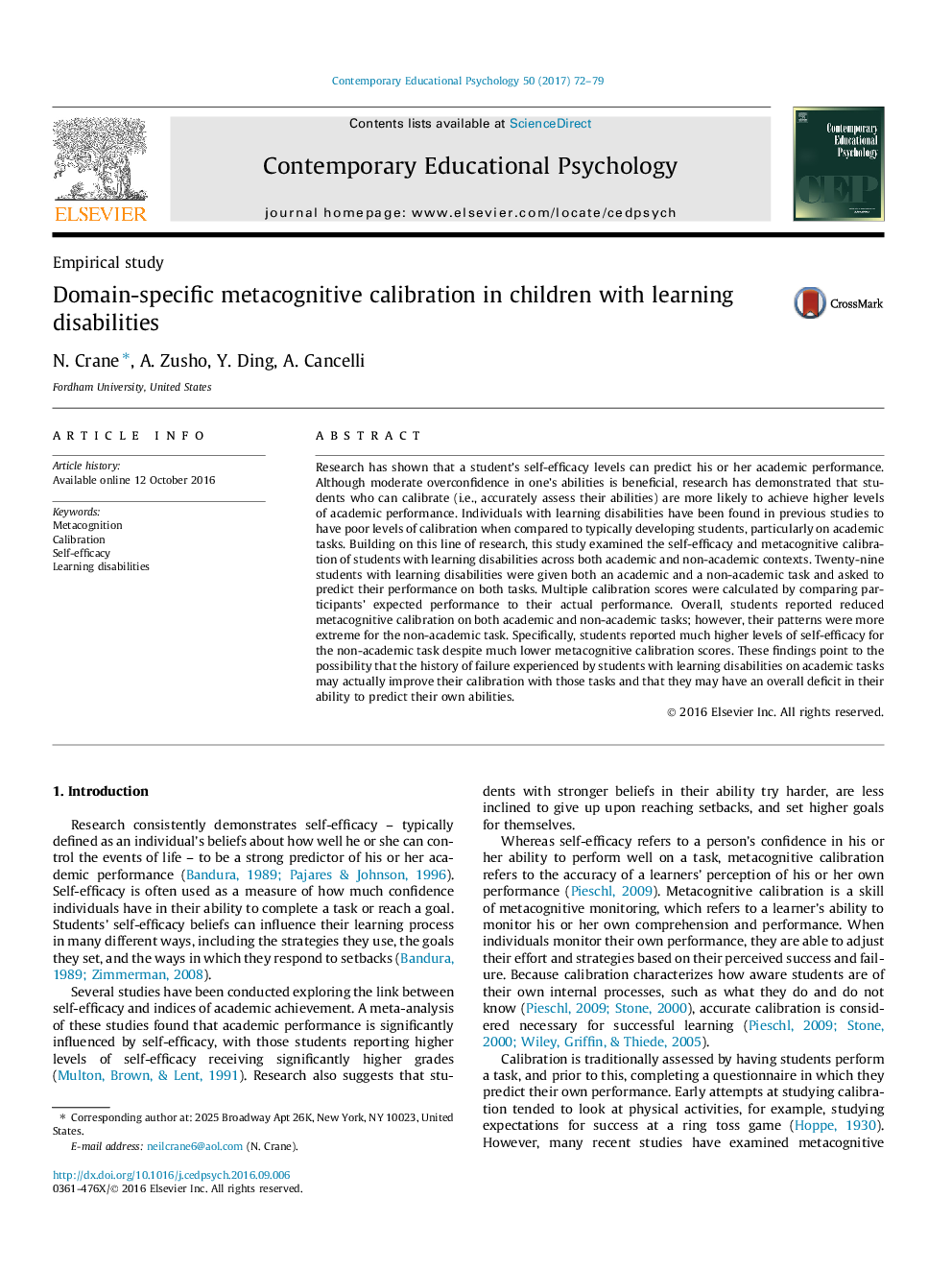| کد مقاله | کد نشریه | سال انتشار | مقاله انگلیسی | نسخه تمام متن |
|---|---|---|---|---|
| 4937880 | 1434669 | 2017 | 8 صفحه PDF | دانلود رایگان |
- The study examined the calibration and self-efficacy of children with learning disabilities.
- Constructs were compared between academic and non-academic tasks.
- Higher self-efficacy and lower calibration was shown on the non-academic tasks.
- The results may support reduced calibration being the result of reduced executive function.
Research has shown that a student's self-efficacy levels can predict his or her academic performance. Although moderate overconfidence in one's abilities is beneficial, research has demonstrated that students who can calibrate (i.e., accurately assess their abilities) are more likely to achieve higher levels of academic performance. Individuals with learning disabilities have been found in previous studies to have poor levels of calibration when compared to typically developing students, particularly on academic tasks. Building on this line of research, this study examined the self-efficacy and metacognitive calibration of students with learning disabilities across both academic and non-academic contexts. Twenty-nine students with learning disabilities were given both an academic and a non-academic task and asked to predict their performance on both tasks. Multiple calibration scores were calculated by comparing participants' expected performance to their actual performance. Overall, students reported reduced metacognitive calibration on both academic and non-academic tasks; however, their patterns were more extreme for the non-academic task. Specifically, students reported much higher levels of self-efficacy for the non-academic task despite much lower metacognitive calibration scores. These findings point to the possibility that the history of failure experienced by students with learning disabilities on academic tasks may actually improve their calibration with those tasks and that they may have an overall deficit in their ability to predict their own abilities.
Journal: Contemporary Educational Psychology - Volume 50, July 2017, Pages 72-79
